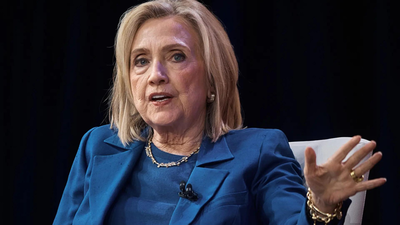US Senator sends letter to Elon Musk: Block Starlink in Southeast Asia’s ‘criminal compounds’ using the satellite internet service to scam Americans

‘Dear Mr Elon Musk, Starlink satellite internet services are being used by criminals in Southeast Asia to scam Americans of billions,’ so says the letter from Democratic senator Maggie Hassan to SpaceX CEO Elon Musk. In the long letter, Hassan urges Elon Musk to block transnational criminal groups in Southeast Asia from using Starlink satellite internet service to commit fraud against Americans. Hassan cited United Nations and other recent reports to support her claim that Starlink is being used to facilitate fraud against Americans by a broad range of transnational criminal organizations operating “scam compounds” in Southeast Asia. The letter asks Elon Musk to respond by August 18, 2025.
Here’s the complete letter sent by Senator Maggie Hassan to Starlink CEO Elon Musk:
Dear Musk, According to an October 2024 report from the United Nations Office on Drugs and Crime, transnational criminal groups have used Starlink, a satellite internet serviced owned by SpaceX, to facilitate fraud against individuals in the United States. The U.S. Treasury Department’s Financial Crimes Enforcement Network has warned that these groups have caused billions of dollars in losses for Americans.In addition, since November 2022, the Secret Service has received more than 8,000 complaints related to digital asset scams, many with traces to scam networks in Southeast Asia. Given the significant financial consequences for Americans, I write today to request information about SpaceX’s efforts to prevent the misuse of Starlink in transnational fraud.Experts have stated that scam networks in Southeast Asia turn to Starlink for its portability, decentralized infrastructure, and independence from national telecom networks. In one example, a Wired investigation found that across eight scam compounds in Myanmar, at least 412 devices identified Starlink as their provider and recorded more than 40,000 logins. In another example, one law enforcement operation in Thailand seized more than 130 Starlink devices from scam compounds around the country.While SpaceX has stated that it investigates and deactivates Starlink devices in various contexts, it seemingly has not publicly acknowledged the use of Starlink for scams originating in Southeast Asia — or publicly discussed actions the company has taken in response. Scam networks in Myanmar, Thailand, Cambodia, and Laos, however, have apparently continued to use Starlink despite service rules permitting SpaceX to terminate access for fraudulent activity.A United Nations report has confirmed that SpaceX can restrict access to Starlink through “geofencing,” making the service unavailable in specific countries or locations, but it is unclear whether the company has done so in Southeast Asia. According to one expert based in the region, “Starlink [is] failing the first basic test of business and human rights, which is to ensure that your operations do no harm.”Transnational fraud has imposed significant human and economic costs in the United States, Southeast Asia, and around the world. According to recent estimates, scams emanating from Southeast Asia likely result in more than $43.8 billion in losses globally each year, with Americans losing $3.5 billion in 2023 alone. This fraud, often carried out by forced labor, can also cause profound psychological distress that drives victims of scams to suicide. The United Nations has also reported that scam networks in Southeast Asia force at least 220,000 trafficked individuals to carry out online scams — a situation its experts describe as a “humanitarian and human rights crisis.”To aid Congress in understanding the scope of Starlink’s role in transnational fraud and efforts to prevent related criminal misuse of its devices, please provide responses to the following information requests. These requests cover the time period of January 1, 2020, to the present:1. Is SpaceX aware of reports that scam networks in Southeast Asia are using Starlink to facilitate fraud? If so, when and how did SpaceX become aware of such use?2. What are SpaceX’s policies and procedures for investigating, deactivating, or restricting Starlink devices?3. What guardrails, policies, or procedures are in place to prevent scam networks in Southeast Asia from acquiring — directly or indirectly — Starlink devices?4. Has SpaceX independently identified, or taken any actions in response to, indications of misuse or improper distribution of Starlink devices by purchasers or third-party intermediaries based in Southeast Asia?5. How many third-party reports or complaints has SpaceX received concerning Starlink use in scam networks in Southeast Asia? Please break down this number by the entity issuing the report or complaint, including United States federal agencies, United Nations offices or agencies, or multilateral organizations.a. How many of these complaints or reports, if any, led SpaceX to investigate, deactivate, or restrict Starlink devices? b. In total, how many devices has SpaceX investigated, deactivated, or restricted due to their use in Southeast Asian scam networks?c. How many devices has SpaceX investigated, deactivated, or restricted due to their use in fraudulent activity generally?6. What vulnerabilities, if any, has SpaceX identified in Starlink’s security protocols that bad actors, including criminal groups operating scam networks in Southeast Asia, may exploit, and what actions has the company taken to address them?7. What steps, if any, has SpaceX taken to cooperate and work with U.S. and international law enforcement entities to address Starlink’s reported use in scam networks in Southeast Asia?8. What revenue, if any, has SpaceX generated to date related to Starlink devices that the company later investigated, deactivated, or restricted due to their use in scam networks in Southeast Asia?




